From the very beginning of the global AIDS epidemic, Haitians have been stigmatized as one of the originally identified risk groups for HIV infection, alongside homosexuals and hemophiliacs. In Haiti, high levels of HIV stigma—including internalized self-stigma—have continued, as reported by the participants in the Through Positive Eyes workshop held in Port-au-Prince, Haiti’s capital city, in December 2014. A house being set on fire, a Christian priest rejecting a beloved parishioner, gossiping neighbors, a father who refuses to speak to his son—all these real-life examples attest to the negative impacts of stigma on people living with HIV and AIDS in Haiti. And yet, over the past decade, Haiti has witnessed a 25% reduction in new infections and AIDS deaths, a remarkable achievement that gives hope for an end to unwarranted stigma.
Haiti’s AIDS Epidemic, as of 2014
- Number of people living with HIV
- 150,000
HIV Prevalence
There is no data on prevalence in key populations for 2014.
- Adults (15–49 years)
- 2.1%
Treatment
Limited treatment provided free since 2003 by Gheskio, with expanded national access since 2005.
- Numbers on treatment (2012)
- 43,200
Key Events
- 1982
- Haitians living with HIV diagnosed in U.S., leading to stigmatization of the country and economic downturn. President Duvalier reacts by making it illegal to mention HIV or AIDS.
- 2001
- President Aristide initiates government policies to prevent and treat HIV.
- 2012
- A survey reports 58% of Haitians would not buy vegetables from a person living with HIV.
Update 2019
Between 2010 and 2018, new HIV infections decreased by 17% and AIDS-related deaths by 45%. By 2018 there were 160,000 Haitians living with HIV. Key populations most affected by HIV are sex workers, men who have sex with men, and prisoners, with an HIV prevalence of 8.4%, 18.2%, and 2.7%, respectively.
In 2016 it became national policy to treat all people living with HIV. In 2018 91,500 Haitians living with HIV (58%)were accessing antiretroviral therapy.
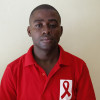
Emmanuel
When someone first receives their test results and realizes they have HIV, they believe their life is over. One thing I always say to someone newly infected is this: It’s not the end of life. It’s …
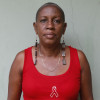
Esther
Poverty is the number one reason why we can’t control the HIV virus in this country. I realized that a lot of other people do not have the support my family gave me. That is why I created the …
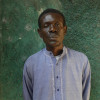
Gaston
I have never tried to find out how I became HIV-positive. You know why I never wanted to find out? Because that would have made me an angry and mean person for sure. I am the father of five children. …
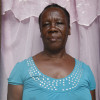
Medina
The father of my children died in 2004 from HIV, and that gave me a lot of problems. I cried. There are still people who stay away. They say I have HIV and that I can’t live next to them. They are …
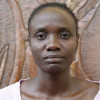
Mideline
When I found out that I had the virus, I was pregnant with twins. They gave me medicine the whole time I was pregnant and giving birth. They gave my twins medicine and they followed up with …
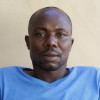
Raphael
In 2004, I went to take the test and I found out I was positive. When I first found out, since I did not really understand what HIV was, it did not make an impact on me. I took it like a fever, like …
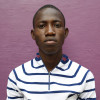
Riccardo
In 2009, I went to spend a summer vacation in Jeremie, a town west of Port-au-Prince. While there, I contracted malaria and typhoid, which took a toll on me. The doctor made me take a bunch of blood …
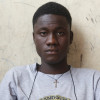
Steeve
I used to go to a lot of brothels. I had never gotten advice that I should use condoms. One day I woke up and felt an intuition that I had to go and get tested. When I first heard I was infected, I …
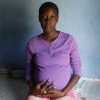
Wideline
I started sex work when I was sixteen years old. Sometimes clients didn’t understand and they got mad. They even curse at you. But the boss would never let anyone hit you. If they are with you for a …
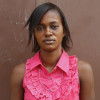
Wilda
I found out my boyfriend was sick. I loved him. I did not protect myself. We were enjoying life, without protection. In 2008, I started getting sick too. When I found out I had HIV, I thought I was …
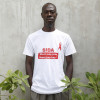
Wilder
I found out about my HIV status in 1998. I went to see a doctor for my skin. The doctor asked me to get tested, and I found out I was infected with HIV. I wanted to throw myself under a car. I don’t …
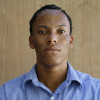
Yveson
I met Emmanuel when he first came out as positive. When he went to the barbershop to cut his hair, the hairdresser refused and told him, “I will lose at least fifteen clients because of you.” I ran …
Supporters
Through Positive Eyes in Port-au-Prince was organized in partnership with FotoKonbit, with assistance from Foundation Esther Boucicault Stanislas (FEBS), Gheskio, and Zanmi Lasante/Partners in Health. Major funding was provided by The Herb Ritts Foundation, with additional support from The Ford Foundation, Teiger Foundation, Gere Foundation, and UCLA.